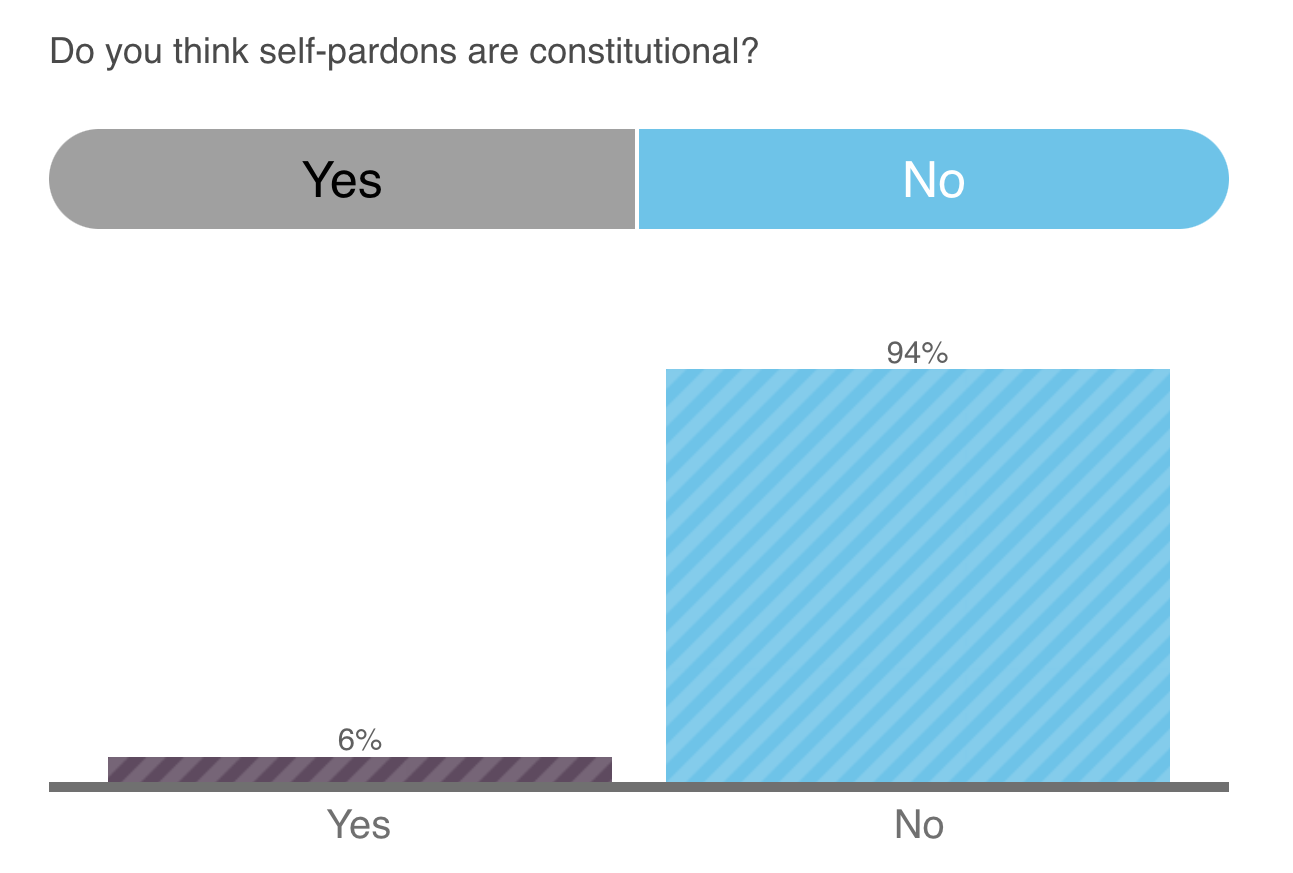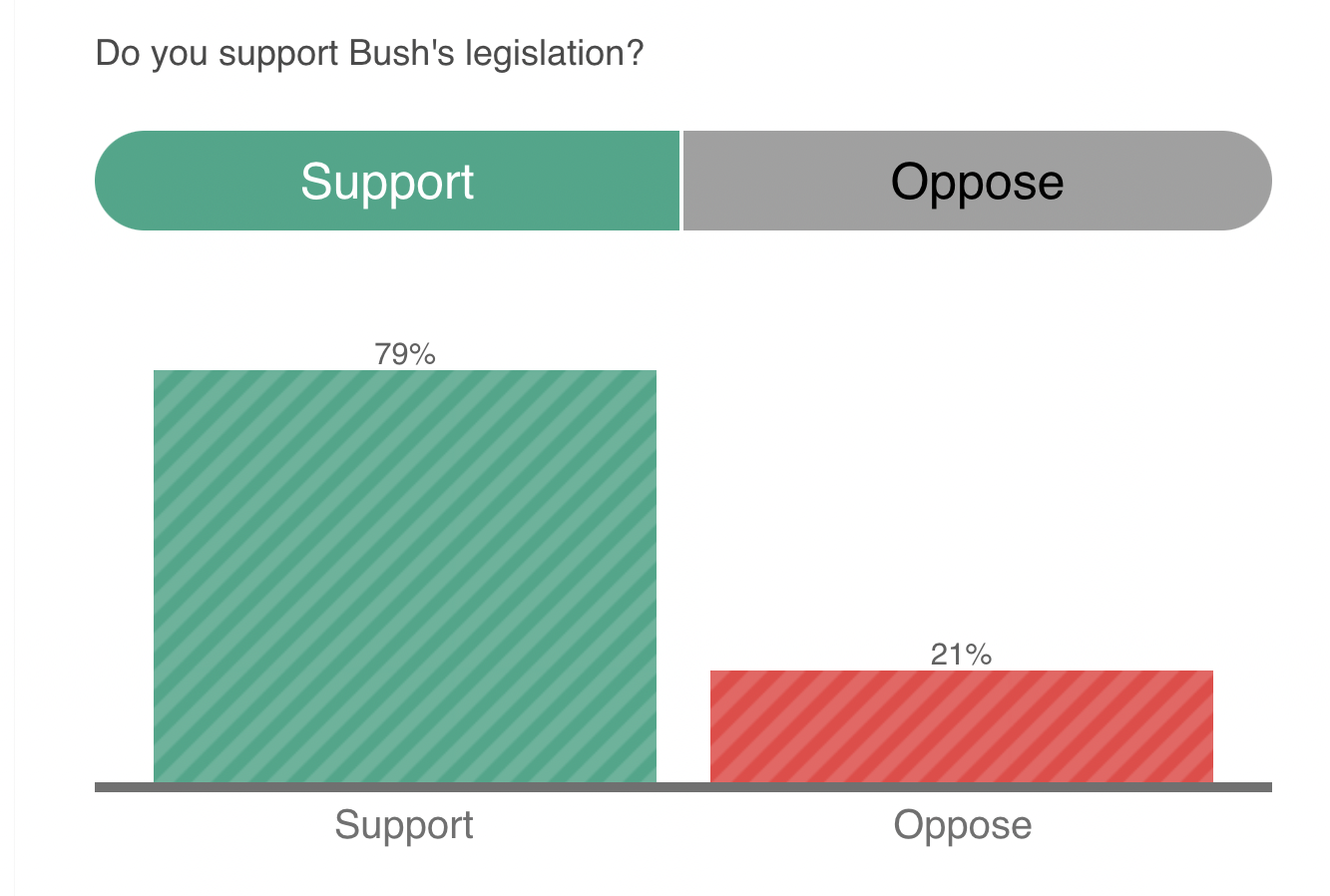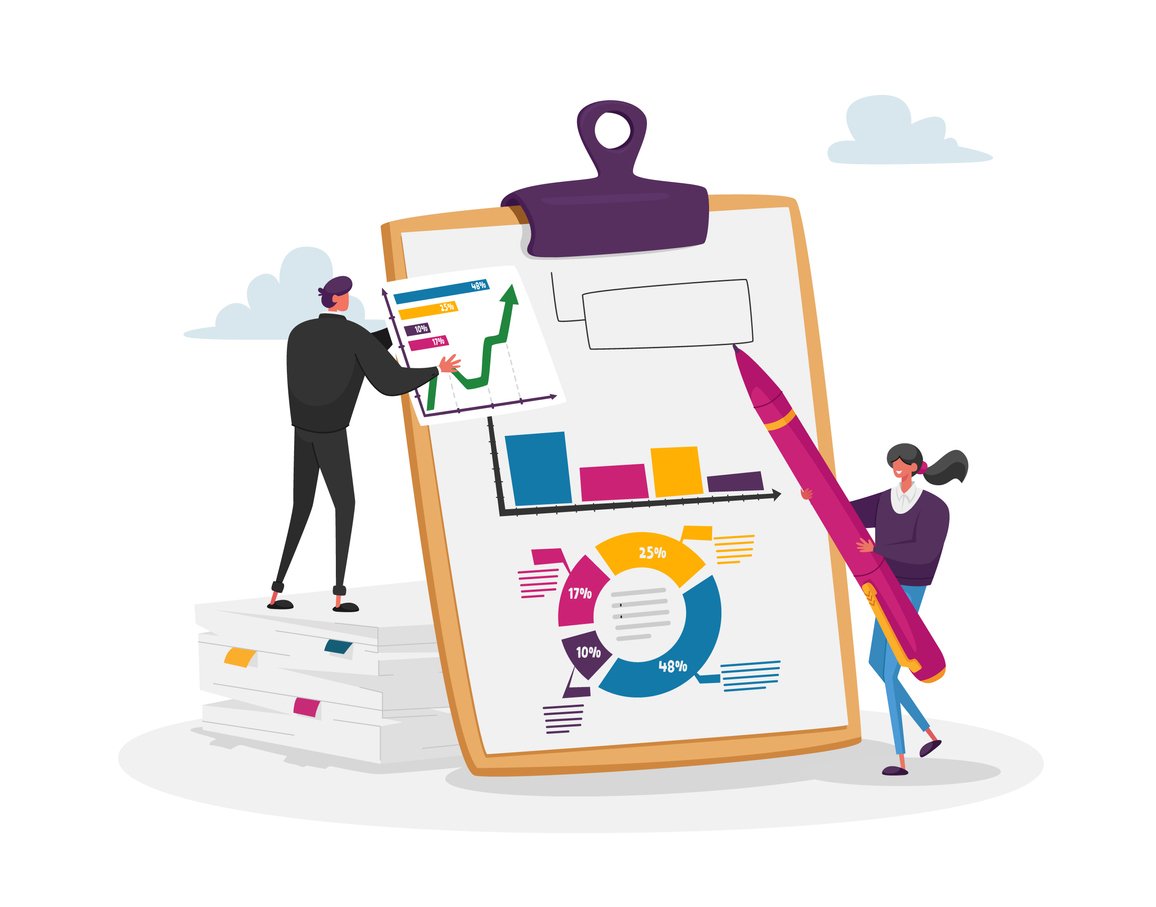Policy Pulse 8.14.23
Introduction
Causes - powered by Countable - provide millions of advocates an intuitive understanding of pending legislation and streamlines the communication process with lawmakers, enabling advocates to influence voting decisions effectively. Advocates can also sound off on issues of national, local, or personal importance: policy, news, campaigns, and more.
As the only advocacy software to also run a community that consistently engages, Causes gives Countable a unique perspective. We get first-hand insights into what advocates think about and discuss, and we're passing these insights on to you.
From Trump's potential power play to Disney's duel with NY legislation a lot of topics caught our advocates attention this week- you won't want to miss these.
TLDR:
- Can Trump Pardon Himself if Elected?
- Disney Fights NY Bill That Would Cut Tax Breaks for Replacing Humans With AI
-
Lawmaker Re-Introduces Unhoused Bill of Rights
The latest:
Can Trump Pardon Himself if Elected?
What's the story?
- In light of Trump's legal troubles, the debate over whether a president has the right to pardon himself has been reignited. The Constitution gives the president broad power to grant pardons in federal cases, but the text is ambiguous regarding whether this power extends to a self-pardon.
- Trump is currently facing three separate criminal indictments, two of which are federal and one brought by the state of New York.
- In 2018, the president tweeted that he had the "absolute right" to pardon himself.
What we know
- Article II, Section 2 of the Constitution establishes the president's ability to issue pardons with two fundamental limitations. The first limitation is that the president can only pardon federal-level "offenses against the United States." If re-elected, Trump could not pardon himself in the New York case because the Constitution does not allow presidential pardons for state crimes.
- The second limitation precludes a sitting president from pardoning anyone in cases of impeachment, including themselves.
- The Supreme Court has ruled that the president can pardon someone at any time after a crime has been committed, "either before legal proceedings are taken or during their pendency, or after conviction and judgment."
What we don't know
- The verdict remains inconclusive because self-pardon is an untested gray area in American legal history. The Supreme Court has not yet ruled on the question and remains undecided.
- Before the 1974 resignation of President Richard Nixon, a Justice Department memorandum asserted that the president did not have the right to pardon himself because of the longstanding principle that "no person may be a judge in his or her own case."
- If Trump is re-elected and issues himself a self-pardon, it would likely be challenged in court as an abuse of the Constitution, a violation of the pardon power, and thus invalid.
What advocates are thinking:

What advocates are saying:
Sad.
Sad that we would have to even contemplate such an atrocity.
This question has never been ruled on by the Supreme Court
and given the lack of trust in the Supreme Court these days, it is likely than a ruling cannot be trusted to be impartial. However, since I can only use common sense and my TV legal training, I will say that pardoning oneself is unwise and likely to cause a total breakdown of any kind of rule of law and of democracy in this country.
The abuse of presidential pardons has gone on for many administrations.
Mr.Trump used it to release from prison some of the most notorious financial criminals in modern history. But the concept of self-pardoning cannot be what was idealized in our constitution. Mr. Trump will do so if given the chance.

Disney Fights NY Bill That Would Cut Tax Breaks for Replacing Humans With AI
What's the story?
- NBCUniversal and the Walt Disney Company are paying lobbyists to keep an eye on new legislation that would stop them from getting a tax break on AI used to replace actors.
- Soon after the New York bill, S.B. 7422, was introduced in June, lobbyists started monitoring its movement, according to disclosures filed with the state Commission on Ethics and Lobbying in Government.
- The use of AI in media is a leading cause of the Screen Actors Guild – American Federation of Television and Radio Artists (SAG-AFTRA) and Writers Guild of America (WGA), as both writers and actors are voicing concerns about being replaced or replicated, without their consent, by AI.
- Since the beginning of 2020, NBCUniversal has received nearly $100 million in tax credits for 14 major New York productions, including Tonight Show with Jimmy Fallon and Saturday Night Live. Disney received almost $11 million for multiple projects.
Arguments for:
- Gloria Bigalow, a screenwriter and member of WGA and SAG-AFTRA, spoke about the fear of AI replacing workers in the film industry:
"I'm very nervous about it. We understand that artificial intelligence is coming, it's here, it's going to be a part of our lives. But we need to use it as a tool, it shouldn't replace people. People want to know that their jobs are protected."
- Eric Wallace, a screenwriter on the show "The Flash," said:
"It's not that AI shouldn't exist—it already does exist, that we can't stop. What we're looking for is regulation that keeps human beings and human interests in mind. I don't want a computer taking my script, learning from it for free, and I got nothing, and then putting me out of business."
Arguments against:
- Joshua Glick, a professor of film and electronic arts, spoke about how AI can be used in progressive and innovative ways:
"There have been instances where these tools have been used in quite progressive and creative ways. In Welcome to Chechnya, Ryan Laney, the effects supervisor, was using deepfake technology as a way to protect the onscreen subjects to essentially create what was called 'digital veils' for the individuals that appear in the film. It allowed those people to communicate and engage with audiences but also to maintain their anonymity."
"As is standard, we track, monitor and review any bills introduced that could potentially impact our business, and in compliance with New York State law, we transparently report those information-gathering efforts in our lobbying disclosures."
What advocates are saying:
The film industry should be free to run its industry as they see fit
BUT on their own dime - no tax breaks- and they need to work it out with their unions (actors, writers, etc).
AI should not be allowed
to operate in the film or news media.
I will refuse to watch movies written by Artificially Intelligent programs.
Such movies are simply a complicated combination of plagiarised sources previously written by living writers.
Share this
You May Also Like
These Related Stories

Policy Pulse 7.31.23

Policy Pulse 7.10.23

